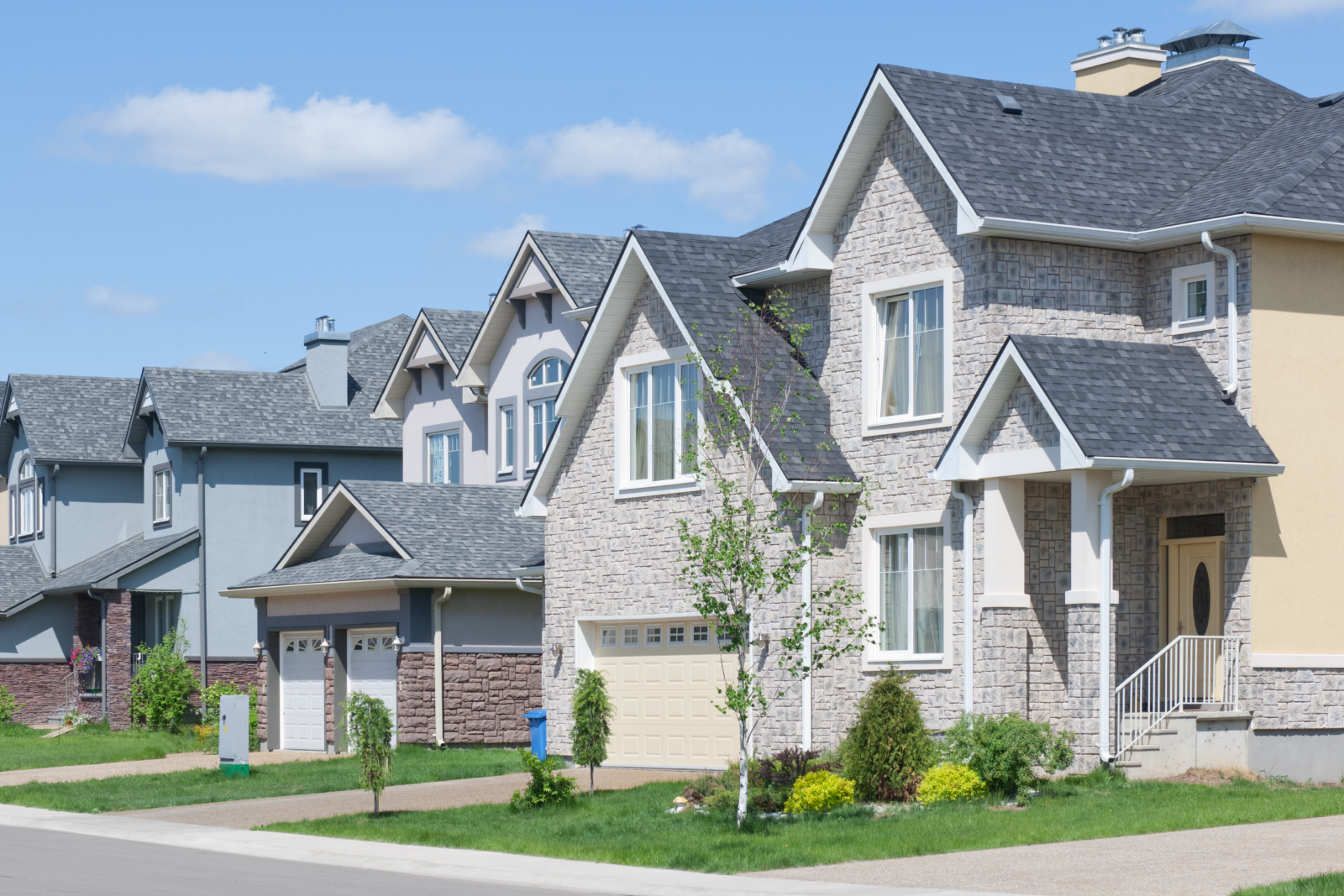Agent Guide to Real Estate Farming
An agent guide on how to pick a farm area in real estate and grow your influence.

In this article:
- What is geographic farming?
- What is demographic farming?
- How to pick a farm area in real estate
- Top real estate farming techniques
- 12 real estate farming ideas to maximize your visibility
Real estate farming is a valuable marketing strategy that involves planting, nurturing and cultivating real estate leads that grow into future business. Farming is typically done in an area close to your home, where your connection to the community is strongest. There are two main types of real estate farming: geographic (also called geo-farming) and demographic (also called niche farming).
What is geographic farming?
Geographic farming is the practice of targeting marketing efforts in a specific area or neighborhood. A geo-farm might be an entire town, ZIP code or subdivision.
What is demographic farming?
Demographic farming involves focusing your marketing efforts on a specific demographic within your geo-farming area. Targeting first-time buyers, investors, move-up buyers, downsizing sellers, golfers, pilots, hikers, or buyers and sellers in a certain price range are all examples of niche marketing.
Whenever you use demographic farming, make sure you understand and comply with the Fair Housing Act and all state and local fair housing laws. These laws protect against discriminatory treatment when renting, buying or securing financing for housing and include discrimination against race, color, religion, sex, disability, familial status and more.
How to pick a farm area in real estate
Your farming area is dependent on size, turnover, competition, demographics and location. Here are seven steps to help you pick a farming area that provides the most return on investment.
1. Select a real estate farming area close to your home
Farming in your own neighborhood means that you’re the local expert — a distinct advantage in real estate. In fact, 74% of sellers viewed an agent who had local or neighborhood-specific knowledge as very or extremely important in helping them decide on an agent, according to Zillow Group Consumer Housing Trends Report 2019 survey data. Some benefits of farming close to home are:
You already know the neighborhood. When engaging with clients, you can use your local expertise to give information and answer questions about nearby amenities like restaurants, schools and parks.
You have connections within the community. You’ve already established a sense of trust with residents, because you interact with them at places like the grocery store, dentist and movie theater.
You can connect with prospects easily. You’ll likely find potential clients when hanging out with friends, running errands, going to the gym, etc.
You’ll know right away when someone is thinking of selling. Your sphere of influence is in your farming area, meaning that when your friend’s neighbor is looking to sell, you’ll be one of the first to know.
2. Research your real estate farm area
Make sure you’re farming for real estate leads in an area that you like and can provide you with the income you need to meet your real estate business plan goals. Before committing to farming real estate areas, research the following items using Google or census data:
- Average income of homeowners
- Average age of residents
- Types of transportation that are frequently used
- Employers in the area
- Popular home styles in the area
- Nearby amenities like restaurants, parks, nightlife and schools
- Upcoming construction or newly constructed homes
- Number of competing real estate agents
3. Narrow down your real estate farm area to focus on a niche
While you’re conducting research, pay attention to clues that will help you target a niche market. For example, if there are two dog parks in the area, you may want to consider targeting pet owners with your marketing efforts.
4. Consider the size of the real estate farming area
When considering niche farming, size is key. Your niche should be a reasonable size. 'Top 50 PGA golfers' isn’t a very large niche — you’ll only have 50 people to reach. 'People looking to buy golf course homes' expands your farming pool to more potential leads.
5. Choose a geo-farming real estate area with set boundaries
Each neighborhood offers a certain type of home and lifestyle, and the Zillow Group Report shows that 56% of buyers find it highly important that a home is in their preferred neighborhood. By capitalizing on the characteristics of your farming area, you can easily market to your target demographic. Clear boundaries, such as neighborhoods or subdivisions, also ensure you don’t overstep into another agent’s farming area.
6. Check for competing real estate farming agents in the area
If there’s a well-established real estate agent farming your prospective area, it may not be feasible to try to compete against them. Because they have a head start, you’ll have to get creative. Figure out what they’re not doing and use that to build your brand. Just know that it may take a while to appeal to the people living in that community.
7. Compare multiple areas when farming real estate
When you’re looking to start farming real estate areas, compare multiple locations to see which has the most overall appeal. Use these strategies to calculate average home sale prices, turnover, competition and more:
Average sale price. Pull an MLS report of sold listings from the past two or three years, and calculate the average sale price for each year.
Average commission per sale. Calculate the average commission per sale based on the average sale price. A commission rate of 3% and a median home price of $462,000 would result in an average of $13,860 per home sale (0.03 x $462,000 = $13,860).
Turnover rate. Divide the number of homes in your farm area by the total number of homes sold in the last two years. If there are 400 homes and 50 have sold in the last two years, you have a 12.5% turnover rate (50 ÷ 400 = 0.125).
Income potential. Multiply the total number of homes sold by the average commission. 50 homes x $13,860 = $693,000 over two years.
You can then create a table to show your top three real estate farming areas, weigh your options, and determine your best neighborhood. Here’s an example:
| Area 1 | Area 2 | Area 3 | |
| Number of homes | 300 | 400 | 500 |
| Number of homes sold (last two years) | 40 | 50 | 20 |
| Turnover rate | 13.3% | 12.5% | 4% |
| Average sale price | $350,000 | $462,000 | $750,000 |
| Average commission per sale | $10,500 | $13,860 | $22,500 |
| Income potential | $420,000 | $693,000 | $450,000 |
| Average days on the market | 14 | 30 | 45 |
| Number of current listings | 10 | 5 | 6 |
Top real estate farming techniques
Being prepared with farming techniques can win you more leads in your farming area. Here are three techniques to help you dominate the market:
- Create a real estate marketing plan (and follow it!).
- Be the first to welcome new homeowners to the neighborhood with a basket of local products.
- Know every time a home goes on the market and be the first to preview it.
12 real estate farming ideas to maximize your visibility
You’ll need to constantly connect with individuals to establish yourself and your brand. Here are 12 real estate farming ideas to start maximizing your visibility:
1. Knock on doors in your farming real estate area
Door knocking is a free way to market yourself in your real estate farm area. If you’re not local, or you’re new to the area, this is the perfect way to get some face time with potential shoppers. Leave them with a unique business card or informational brochure so they have a way to contact you when they’re ready.
2. Leave informational door hangers in your real estate farming market
If the homeowner is away or you don’t feel comfortable knocking, leave a door hanger with some information on real estate events you’re hosting. Be sure to include your website and phone number on the hanger.
3. Send real estate farming materials via direct mail
Having the right materials is an essential part of knowing how to farm a neighborhood in real estate. They can include newsletters, postcards, flyers, market reports, just-listed and just-sold notices, and more. Many sales experts suggest sending real estate farming materials out monthly — you can expect to do this for a year before seeing any consistent results.
Sharing your specific knowledge about the area will convey that you're a real estate expert. Remember to include your website, phone and email information along with a pertinent call to action.
4. Collect emails with automated real estate farming postcards
Use an automated direct mail service to send personalized postcards every month. A good tactic is to direct users to a market report that requires them to enter their email before viewing, which lets you follow up with your new lead to see if they’d like to connect.
5. Email homeowners to farm for real estate leads
Once prospects have provided their contact information through your postcards, open houses or website, you can send them real estate newsletters or market updates via email. Most people prefer to receive digital communications, and it cuts down on the costs of using direct mail. Don’t forget to include links to your website and social media accounts in your email signature.
6. Become a Zillow Premier Agent
Zillow Premier Agent provides a digital solution to make sure the audience you’re farming offline will see and connect with you online. In addition to connections with active home shoppers searching in the ZIP codes of your choice, you also get a built-in contact management system, insights into the homes your buyers are looking at, training and more. This allows you to not only meet home shoppers in your market, but also provides you with the tools you need to stay two steps ahead of today’s on-demand marketplace.
7. Sponsor a sports team or program in your real estate farm area
Sponsoring a Little League team gets you points with the community and increases exposure. Don’t limit sponsorship to team events. Consider sponsoring things like:
- Community events
- Food drives
- School fundraising events
Don’t forget to check with your CPA to see if sponsorships are tax deductible. If you need help with funding, consider partnering with a lender. Co-marketing with a lender (including adding their contact information to your farming materials) is a great way to reduce expenses.
8. Host local events or free meetups for FSBO sellers
Share your real estate expertise with the community by hosting a free event on how to sell your home or how to understand your home’s value. This is especially relevant in younger communities — 36% of millennials and 26% of Gen Xers try to sell on their own, according to the Zillow Group Consumer Housing Trends Report 2018, but many become overwhelmed with the process. Hosting an event or meetup is a great real estate agent farming technique because it establishes you as the area expert. Be sure to provide your email, phone number and website so potential leads can follow up.
9. Participate in local online real estate forums
Most communities have an online forum, Facebook group or message board. Earn trust by joining in the conversation and introducing yourself as a member of the community and a real estate agent. You can throw in a listing or market update every now and again to keep your name associated with real estate in their area.
10. Share your real estate farming area's growth on social
Social media platforms like Facebook, Twitter and Instagram are great for sharing charts, maps and even memes on how the neighborhood has grown or changed over the years. Remember to target your demographic with information that’s relevant and in their preferred format. Your followers’ responses and reactions will help you shape your communication strategy.
11. Blog about the best places to visit in your farming area
Highlight the best restaurants, entertainment venues or parks in your real estate farming area in blog posts, and then share those posts on social media and your website. Blogging about new or exciting places is a great way to get people to share your post, which exposes you to more potential leads.
12. Create a Facebook ad
Use Facebook advertising to target specific ZIP codes, interests and even categories like 'ready to move.' Remember to understand and comply with the Fair Housing Act and all state and local fair housing laws when targeting demographics.
Tips for top-performing listings
Backed by new research, this guide reveals what today’s top listings do differently to capture buyer attention and outperform the rest.
Learn more

